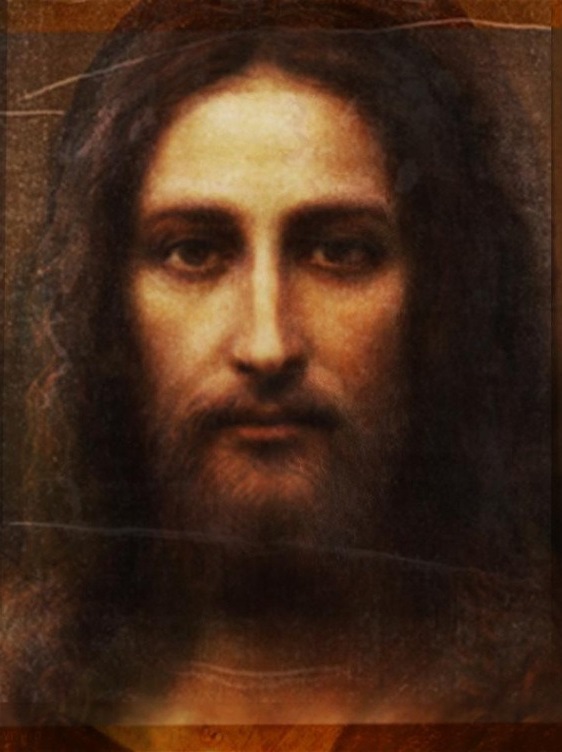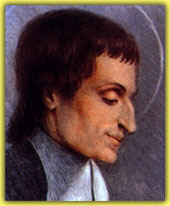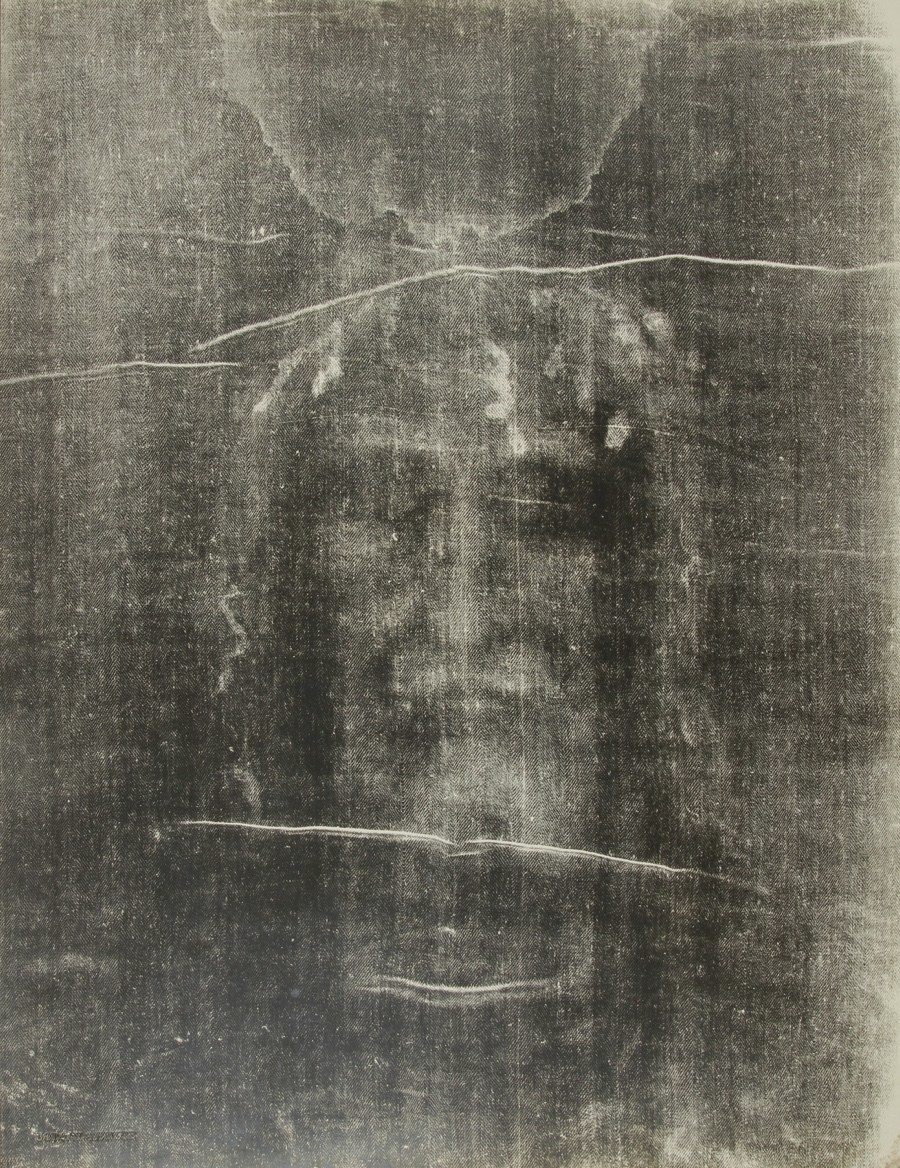圣路易·蒙福 --------------- 1673-1716
不幸的是我沒有找到中文翻譯。 我把英文版放在這裡。 原來是法語。
The admirable secret of the rosary for renewal and salvation
Twenty-second Rose: The Meditation of the Mysteries makes us resemble Jesus
65. The chief concern of the Christian should be to tend to perfection. "Be faithful imitators of God, as his well-beloved children," the great Apostle tells us. This obligation is included in the eternal decree of our predestination, as the one and only means prescribed by God to attain everlasting glory. Saint Gregory of Nyssa makes a delightful comparison when he says that we are all artists and that our souls are blank canvasses which we have to fill in. The colours which we use are the Christian virtues, and the original which we have to copy is Jesus Christ, the perfect living image of God the Father. Just as a painter who wants to do a life-like portrait places the model before his eyes and looks at it before making each stroke, so the Christian must always have before his eyes the life and virtues of Jesus Christ, so as never to say, think or do anything which is not in conformity with his model.
66. It was because our Lady wanted to help us in the great task of working out our salvation that she ordered Saint Dominic to teach the faithful to meditate upon the sacred mysteries of the life of Jesus Christ. She did this, not only that they might adore and glorify him, but chiefly that they might pattern their lives and actions on his virtues. Children copy their parents through watching them and talking to them, and they learn their own language through hearing them speak. An apprentice learns his trade through watching his master at work; in the same way the faithful members of the Confraternity of the Holy Rosary can become like their divine Master if they reverently study and imitate the virtues of Jesus which are shown in the fifteen mysteries of his life. They can do this with the help of his grace and through the intercession of his blessed Mother.
67. Long ago, Moses was inspired by God to command the Jewish people never to forget the graces which had been showered upon them. The Son of God has all the more reason to command us to engrave the mysteries of his life, passion and glory upon our hearts and to have them always before our eyes, since each mystery reminds us of his goodness to us in some special way and it is by these mysteries that he has shown us his overwhelming love and desire for our salvation. "Oh, all you who pass by, pause a while," he says, "and see if there has ever been any sorrow like to the sorrow I have endured for love of you. Be mindful of my poverty and humiliations; think of the gall and wormwood I took for you in my bitter passion." These words and many others which could be given here should be more than enough to convince us that we must not only say the Rosary with our lips in honour of Jesus and Mary, but also meditate upon the sacred mysteries while we are saying it.
Twenty-third Rose: The Rosary is a Memorial of the Life and Death of Jesus
68. Jesus Christ, the divine spouse of our souls and our very dear friend, wishes us to remember his goodness to us and to prize his gifts above all else. Whenever we meditate devoutly and lovingly upon the sacred mysteries of the Rosary, he receives an added joy, as also do our Lady and all the saints in heaven. His gifts are the most outstanding results of his love for us and the richest presents he could possibly give us, and it is by virtue of such presents that the Blessed Virgin herself and all the saints are glorified in heaven. One day Blessed Angela of Foligno begged our Lord to let her know by which religious exercise she could honour him best. He appeared to her nailed to his cross and said, "My daughter, look at my wounds." She then realized that nothing pleases our dear Lord more than meditating upon his sufferings. Then he showed her the wounds on his head and revealed still other sufferings and said to her, "I have suffered all this for your salvation. What can you ever do to return my love for you?"
69. The holy sacrifice of the Mass gives infinite honour to the most Blessed Trinity because it represents the passion of Jesus Christ and because through the Mass we offer to God the merits of our Lord's obedience, of his sufferings, and of his precious blood. All the heavenly court also receive an added joy from the Mass. Several doctors of the Church, including St. Thomas, tell us that, for the same reason, all the blessed in heaven rejoice in the communion of the faithful because the Blessed Sacrament is a memorial of the passion and death of Jesus Christ, and that by means of it men share in its fruits and work out their salvation. Now the holy Rosary, recited with the meditation on the sacred mysteries, is a sacrifice of praise to God for the great gift of our redemption and a holy reminder of the sufferings, death and glory of Jesus Christ. It is therefore true that the Rosary gives glory and added joy to our Lord, our Lady and all the blessed, because they cannot desire anything greater, for the sake of our eternal happiness, than to see us engaged in a practice which is so glorious for our Lord and so salutary for ourselves.
70. The Gospel teaches us that a sinner who is converted and who does penance gives joy to all the angels. If the repentance and conversion of one sinner is enough to make the angels rejoice, how great must be the happiness and jubilation of the whole heavenly court and what glory for our Blessed Lord himself to see us here on earth meditating devoutly and lovingly on his humiliations and torments and on his cruel and shameful death! Is there anything that could touch our hearts more surely and bring us to sincere repentance? A Christian who does not meditate on the mysteries of the Rosary is very ungrateful to our Lord and shows how little he cares for all that our divine Saviour has suffered to save the world. This attitude seems to show that he knows little or nothing of the life of Jesus Christ, and that he has never taken the trouble to find out what he has done and what he went through in order to save us. A Christian of that kind ought to fear that, not having known Jesus Christ or having put him out of his mind, Jesus will reject him on the day of judgment with the reproach, "I tell you solemnly, I do not know you." Let us meditate, then, on the life and sufferings of our Saviour by means of the holy Rosary; let us learn to know him well and to be grateful for all his blessings, so that, on the day of Judgment, he may number us among his children and his friends.
Twenty-fourth Rose: Meditation on the Mysteries of the Rosary is a great means of perfection
71. The saints made our Lord's life the principal object of their study; they meditated on his virtues and his sufferings, and in this way arrived at Christian perfection. Saint Bernard began with this meditation and he always kept it up. "At the very beginning of my conversion," he said, "I made a bouquet of myrrh fashioned from the sorrows of my Saviour. I placed this bouquet upon my heart, thinking of the lashes, the thorns and the nails of his passion. I applied my whole mind to the meditation on these mysteries every day." This was also the practice of the holy martyrs; we admire how they triumphed over the most cruel sufferings. Where could this admirable constancy of the martyrs come from, says Saint Bernard, if not from the wounds of Jesus Christ, on which they meditated so frequently? Where was the soul of these generous athletes when their blood gushed forth and their bodies were wracked with cruel torments? Their soul was in the wounds of Christ and those wounds made them invincible."
72. During her whole life, our Saviour's holy Mother was occupied in meditating on the virtues and the sufferings of her Son. When she heard the angels sing their hymn of joy at his birth and saw the shepherds adore him in the stable, her heart was filled with wonder and she meditated on all these marvels. She compared the greatness of the Word incarnate to the way he humbled himself in this lowly fashion; the straw of the crib, to his throne in the heart of his Father; the might of God, to the weakness of a child; his wisdom, to his simplicity. Our Lady said to Saint Bridget one day, "Whenever I used to contemplate the beauty, modesty, and wisdom of my Son, my heart was filled with joy; and whenever I considered his hands and feet which would be pierced with cruel nails, I wept bitterly and my heart was rent with sorrow and pain."
73. After our Lord's Ascension, our Blessed Lady spent the rest of her life visiting the places that had been hallowed by his presence and by his sufferings. There, she meditated on his boundless love and on his terrible passion. Saint Mary Magdalene continually performed the same religious exercises during the last thirty years of her life, when she lived at Sainte-Baume. Saint Jerome tells us that this was the devotion of the faithful in the early centuries of the Church. From all the countries of the world they came to the Holy Land to engrave more deeply on their hearts a great love and remembrance of the Saviour of mankind by seeing the places and things he had made holy by his birth, his work, his sufferings, and his death.
74. All Christians have but one faith and adore one and the same God, and hope for the same happiness in heaven; they know only one mediator, who is Jesus Christ; all must imitate their divine model, and in order to do this they must meditate on the mysteries of his life, of his virtues and of his glory. It is a great mistake to think that only priests and religious and those who have withdrawn from the turmoil of the world are supposed to meditate upon the truths of our faith and the mysteries of the life of Christ. If priests and religious have an obligation to meditate on the great truths of our holy religion in order to live up to their vocation worthily, the same obligation is just as much incumbent on the laity, because of the fact that every day they meet with spiritual dangers which might cause them to lose their souls. Therefore they should arm themselves with the frequent meditation on the life, virtues, and sufferings of our Blessed Lord, which are presented to us in the fifteen mysteries of the holy Rosary.
"I find nothing more powerful in attracting the reign of God, eternal Wisdom, within us, than joining vocal prayer to mental prayer, reciting the Holy Rosary, and meditating on the fifteen mysteries it contains. "
Saint Louis Marie Grignon de Montfort
Nowadays the Rosary has 20 mysteries: 5 joyful, 5 painful, 5 glorious and 5 bright proposed by saint Pope John Paul II in his
apostolic letter Rosarium Virginis Mariae







